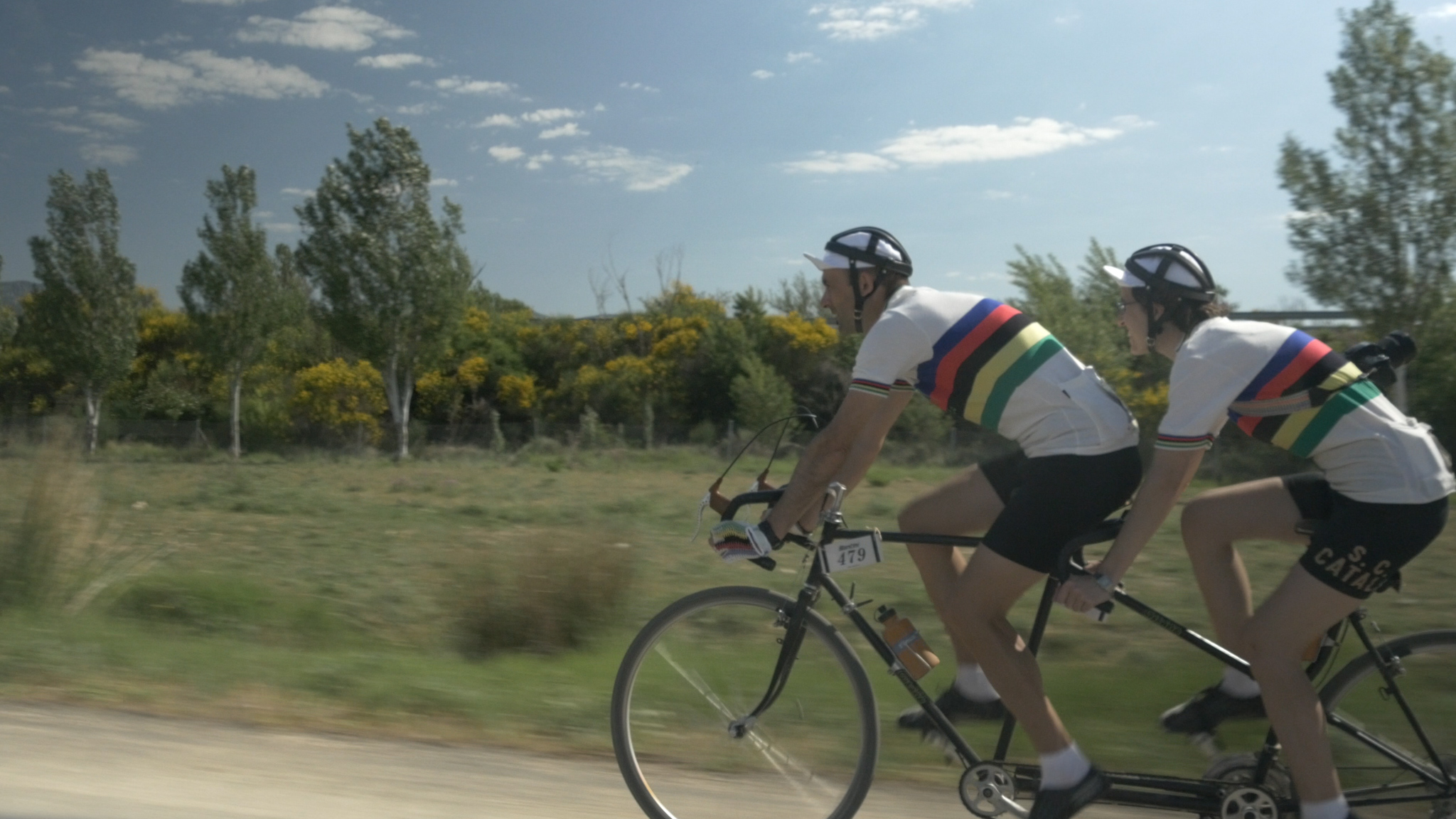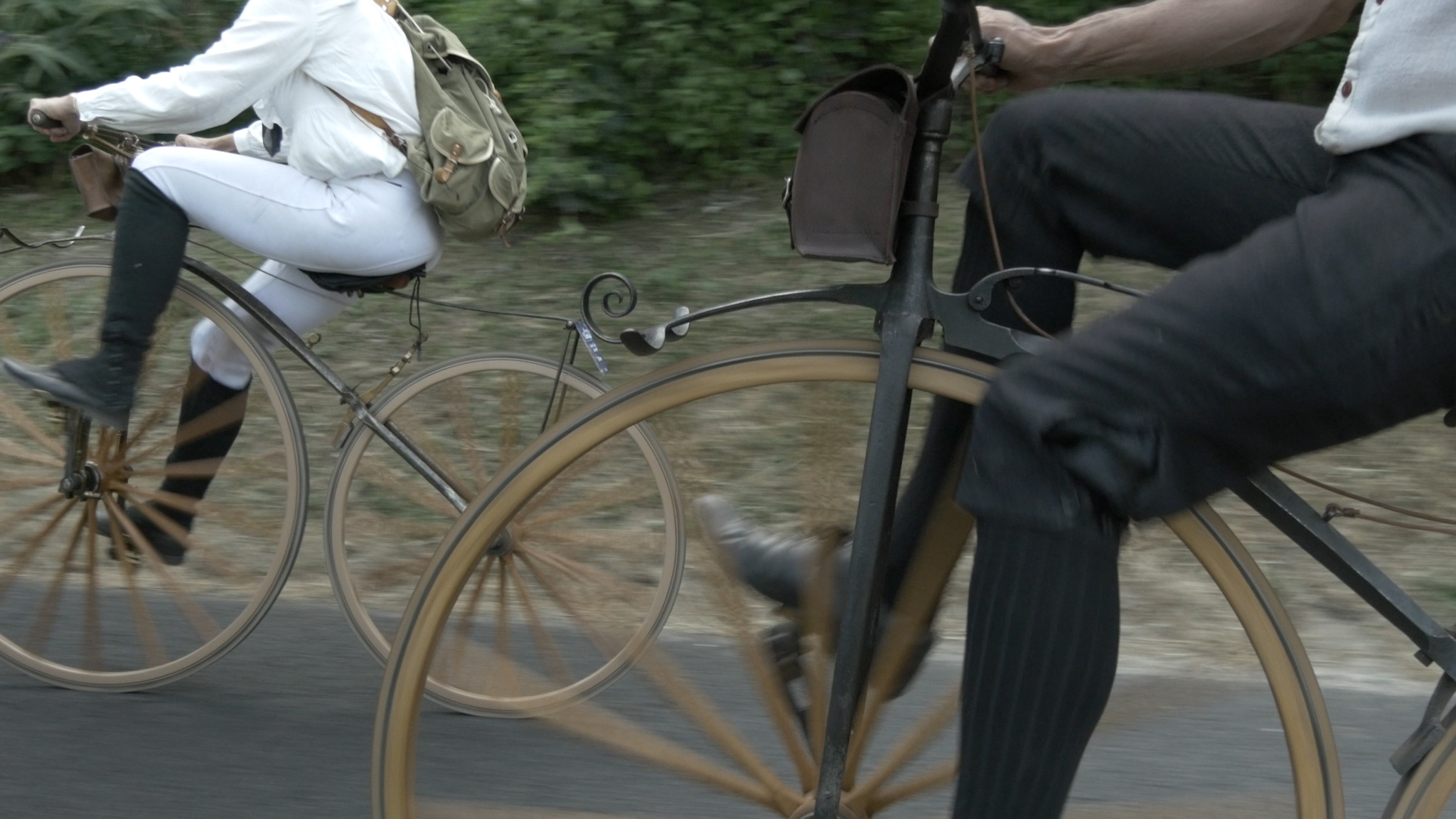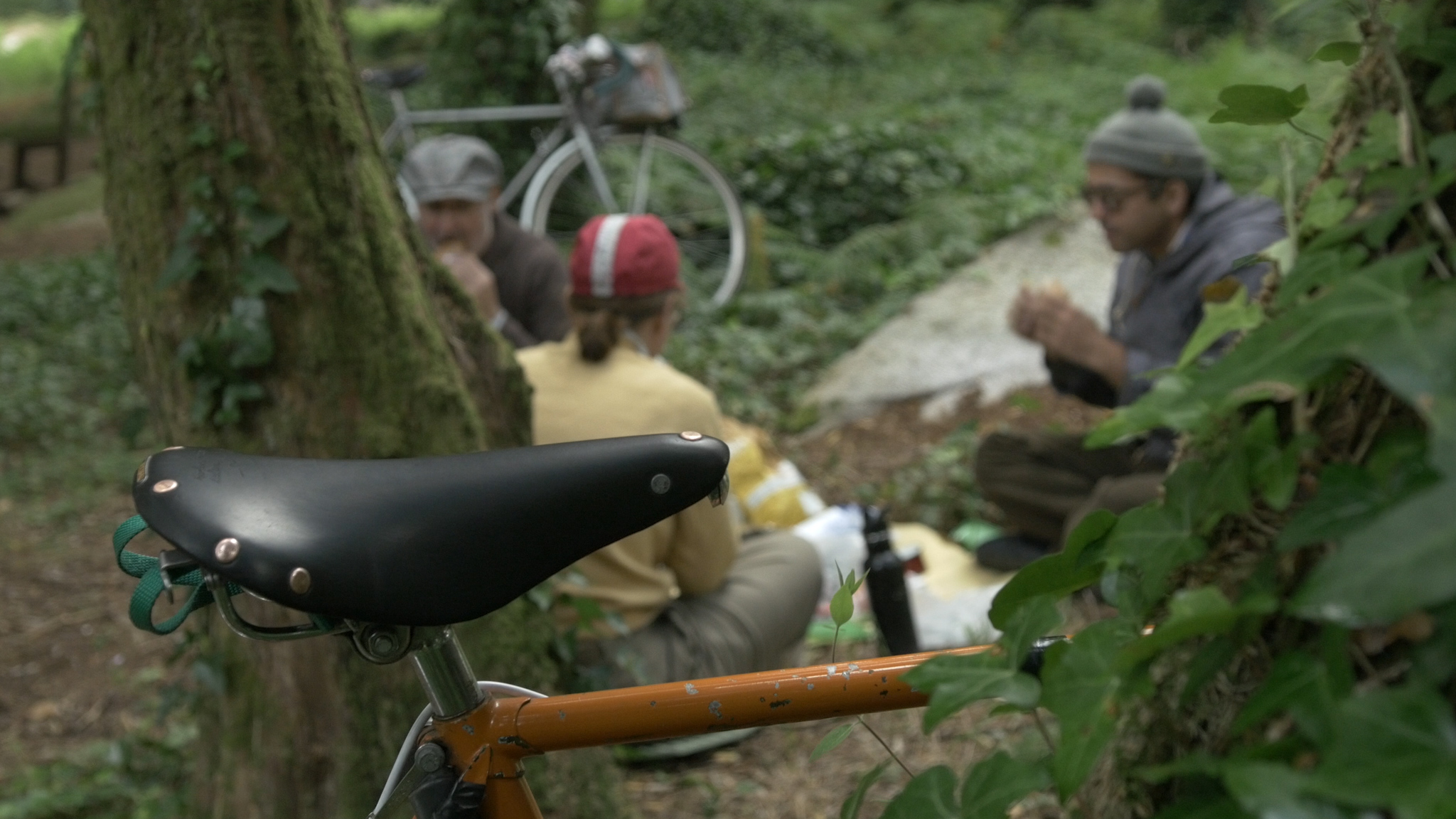Often my choice of bike is inspired by people or certain events. When I got asked to watch a few films for the upcoming London Mountain Film Festival, Edinburgh was still in the tight grip of winter. It would have naturally been the season to sit inside and enjoy films, but for someone who makes a living from filmmaking, I watch very few films myself. I prefer to go out there and ride. Especially when working on a new film I reduce my watch time even more, as I don’t want to fall into the trap of copying other people’s ideas.

But then there are moments when even I struggle to motivate myself to mount a bike in the darkness. On such a dreich evening I started watching ‘The Soul of a Cyclist’, as I had been asked to interview the director for the upcoming (Virtual) London Mountain Film Festival. Dinner time was fast approaching, so my intention was to watch it for a few minutes before cooking. And return to the rest later. 80 minutes later I closed my Macbook with a big smile on my face. It didn’t need many words in an email to Greg Hackett, the festival’s mastermind, to express my delight with the film, and to arrange to do an interview with director Nuno Tavares in the following weeks per Zoom.
Nuno is based in Portugal, where the most of the film is set, but we also travel to London and Stratford-upon-Avon to meet riders of the Tweed Run, the staff of Pashley Bikes and the wonderfully eccentric Joff Summerfield, who has circumnavigated the world on a Penny Farthing not only once, but twice. In a cycling world that is obsessed with new standards and making a rather simple object substantially complex, there was something wonderful about the simplicity of the film and its object. Classic bikes.

When watching the film I couldn’t help but wonder if modern cycling has lost its soul? Rather curious about a different opinion than mine, I put the question to Nuno, who until making the film, wasn’t a cyclist himself. ‘I don’t see cycling losing the soul. Everyone that is on top of a bike is in a good mood, one with the environment and nature. They are enjoying cycling and thinking about their own life, but I think there is a completely different approach when you are on a classical bike. You’ll consider all the history that comes with the bike. It could be a bike from your grandfather. So you have more respect for the object that is the bike, because you have an emotional attachment to it. And it could also be the feeling that you are recycling something. It could be something that would be in the trash, but now you are using it because you see the value of it.’
I looked at my 1970s Claud Butler, which over the winter was rather lonely, stuffed in the corner of my bike shed. Beautifully restored by Walter Hamliton of Velow Bikeworks, it had been the star of a film project last October and served me well for local rides during the first lockdown, but a couple of ‘modern’ gravel bikes I got to test had been my go to choice for the winter instead. They did a great job too, but with a new film set in a museum just around the corner, I dusted off the bike. Being almost 50 years old, older than me, it could as well be just another object being put to its final rest, especially if I would apply the lifespans of products manufactured these days. It took a few sprinkles of lube and topping the air up on the Schwalbe Marathon tires, and I was ready to roll.
‘I am a bit obsessed with bikes in general, but classic bikes have a special resonance with me. They are just elegant, they have got a certain aesthetic. Generally, if they are well made, they have a certain ride quality, especially obviously steel frames. It’s a fact that they are simply built to last.’
I not only had an idea for my new film after talking to Walter, but had also rekindled my love for singlespeed riding again. But what if modern bikes would offer us so much more opportunities to explore than classic bikes?
‘When used for pleasure spins in the country, the bicycle has the knack of taking the rider completely away from all worries and cares. It provides a complete change from everyday routine and gives the cyclist freedom to wander along the country lanes, with stops for rest or refreshment.’ If in doubt, simply look into ‘Bernards’ Pocket Book, published at some stage during the Second World War. It’s a fascinating read, and at less size than a modern iphone, fits easily in a jersey pocket if you need technical help.

I changed the chainring and freewheel on my beloved Claud Butler and set off to test ride a new set of cycling routes in the Cateran Ecomuseum. Equipped with rim brakes and 28mm tires I was rather curious how the bike would perform on anything but country lanes. Gravel roads, singletrack, undefined tracks through open hillsides and a lot of mud and snow. The bike coped, at times much better than the rider on top of it. It was not just another object in a museum, it was doing as good a job as it will have done 50 years ago for its previous owners.
It also helped me to connect with friends and people that share the same passion, a theme that also runs through ‘The Soul of a Cyclist’. It’s not a film about cycling, it’s a film about life. About sharing common interests, like with my friend Jane, a basket weaver in the Cateran Ecomuseum who calls herself ‘Granny Twig’. She only took up cycling in her mid forties on an old Mercian frame to get her own daughter into cycling (who now has a daughter too, if you ask about the granny term). Or Neil, who runs Alyth Cycles and uses an 1980s Raleigh Banana as his singlespeed (fixed gear) bike to get to his shop and any callout as a volunteer firefighter. Whenever we meet, we have loads to talk about.
I still love modern bikes, but for now I am more in love with my 1970s Claud Butler than ever before. And I bet you’ll fall in love with classic bikes after ‘The Soul of a Cyclist’ too.
—-
More information about Virtual London Mountain Film Festival 2021, which includes ‘The Soul of a Cyclist’, can be found here. A trailer can be found here.
A great day trip from Edinburgh to the Cateran Ecomuseum, using Ember, a new electric bus service that takes bikes for free, can be found here.